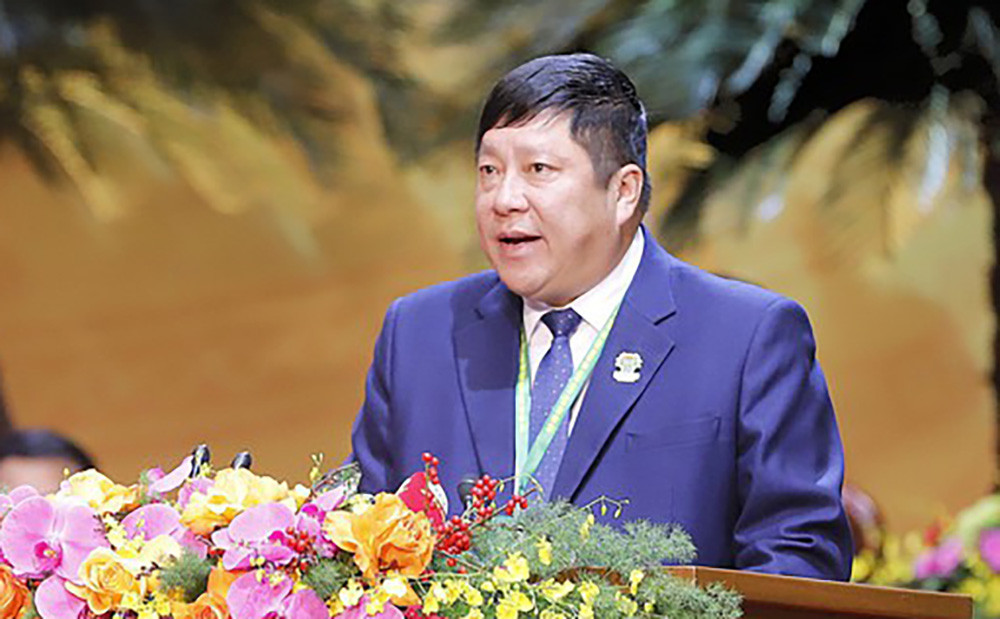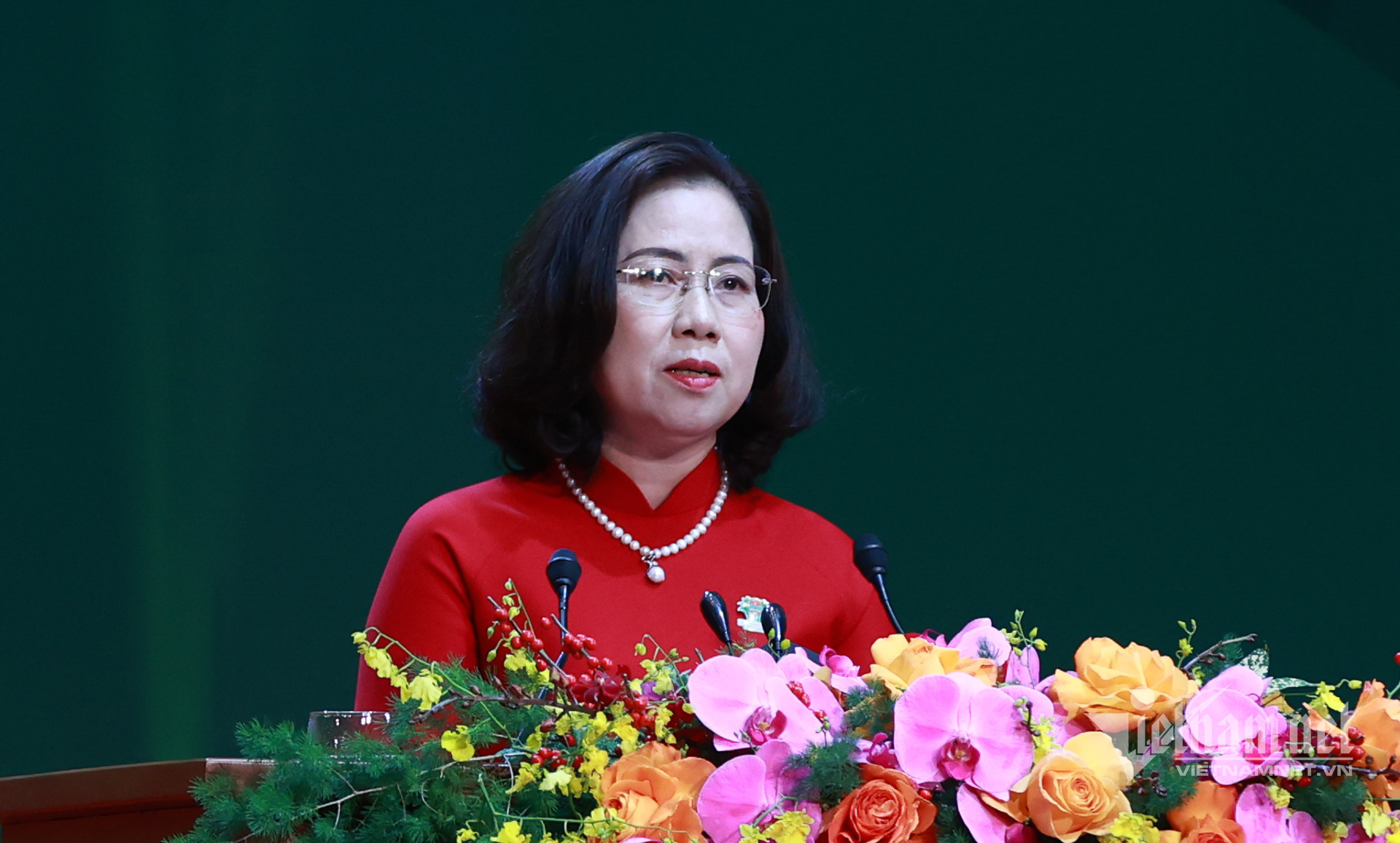
Son La has risen from a poor province to become an "agricultural phenomenon" of Vietnam, which ranks second in fruit growing area, said Mr. Nguyen Huy Anh - Chairman of the Farmers' Association of Son La province at the 8th National Congress of the Vietnam Farmers' Union on December 26.
Many effective business-farmer linkage models
With the goal of developing green, fast and sustainable agriculture, turning Son La into an agricultural product processing center of Vietnam’s Northwest region, the Farmers' Associations at all levels in Son La have implemented synchronous solutions to helf local farmers shift from the mindset of small, fragmented production to cooperation and association in production and business; from agricultural production thinking to agricultural economic thinking, from single-value agricultural production to multi-value integration.
Son La has built many models linking businesses and farmers with high economic efficiency, for example value-chain based production links between the Son La Sugar Joint Stock Company with more than 10,500 households, with a total area of over 9,200 hectares; the production link chain between Moc Chau Dairy Cow Breed Joint Stock Company with 558 households, with a total of 27,790 dairy cows; and the production link between Phuc Sinh Son La Coffee Processing Factory with 10,700 households, with an area of 20,000 hectares of Arabica coffee.
These models have helped create jobs, improve production efficiency and income for farmers.
The activities of Farmers' Associations at all levels in Son La have contributed to turning Son La from a poor, disadvantaged province into an "agricultural phenomenon" of the country, which ranks second in fruit growing area.
Leaders of the Farmers' Association of Son La province have proposed that the Government continue to improve mechanisms and policies to create favorable conditions for farmers to develop production and business, reduce poverty and get rich. In particular, the Government should direct to remove difficulties and obstacles in implementing three national target programs.
The provincial Farmers' Association has also asked the The Central Farmers' Association focus on training to improve capacity and skills for farmer members, promoting service activities, consulting and supporting farmers, building branches and professional associations associated with development of cooperative groups, production and business cooperatives based on the value chain...
Getting businesses involved

Representatives of the Farmers' Association of An Giang province said that there must be solutions to intellectualize farmers, promote digital transformation in agriculture and build new rural areas, increase support for farmers to start creative businesses, and gradually build a new generation of farmers.
Along with that, it is necessary to mobilize businesses to participate in cooperative activities in many forms such as contributing capital, appointing good personnel to manage and administer cooperative governance, and provide technical consulting to gradually build and develop a stable and sustainable linked value chain, creating favorable conditions for businesses to play an important role, being the focal point for investment, administration, establishing systems and building raw material areas, expanding markets;
To create linkage mechanisms in the production and consumption of agricultural products, protecting the rights and interests of farmers and businesses; promote the application of information technology in traceability, updating and exchanging information about market prices of agricultural products, agricultural weather...
Ms. Bui Thi Thom, Vice Chair of the Central Executive Committee of the Vietnam Farmers' Association, 7th term, emphasized the goal of continuing to innovate and improve the effectiveness of farmer movements; to support innovative start-up farmers; to promote linking and cooperating based on the value chain; to develop cooperative groups and cooperatives...
Accordingly, farmers’ associations at all levels need to guide and support farmers in establishing cooperative groups and agricultural cooperatives; develop a variety of household-based economic models, farm economic models, green, organic, circular, smart agricultural models; apply high technology, digital technology, agriculture combined with industry and services crops, urban agriculture; promote models of association and cooperation based on the value chain, large-scale production associated with standard technical processes and production area codes;
Provide timely information for members and farmers about changes in the domestic market and agricultural import market; promote advertising and trade promotion, connecting agricultural product consumption; give consulting and support in building agricultural product brands, establishing planting area codes, and traceability; and guide farmer members to participate in e-commerce platforms.